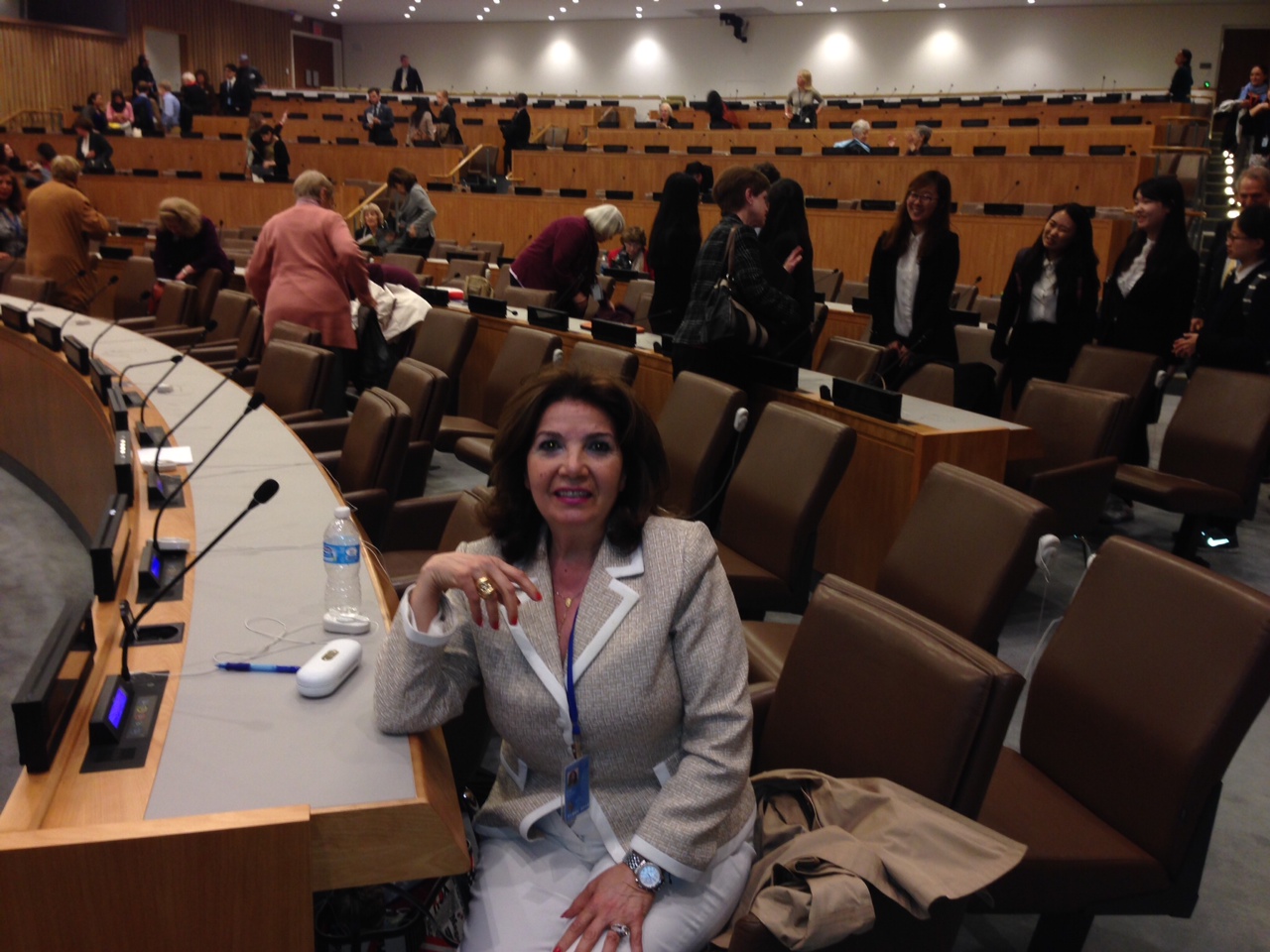Thursday, 1 May 2014
The WLCU attends the UN World Press Freedom Day 2014 conference
STRESSING INDISPENSABLE ROLE OF FREE MEDIA IN DEVELOPMENT
UN SECRETARY-GENERAL ban ki-moon REMEMBERS FALLEN JOURNALISTS
In commomoration of the World Press Freedom Day, The United Nations Department of Public Information [DPI] in cooperation with the United Nations Educational Scientific and Cultural Organization [UNESCO] has extended an invitation to The World Lebanese Cultural Union and to all relevant NGO’s to attend a briefing at the UN Headquarters in New York. The briefing is titled: “Media Freedom for a Better Future: Shaping the Post-2015 Development Agenda”
The WLCU was represented by Mrs Antoinette Atie, a prominent representative of the organization at the DPI. The WLCU, headed by the newly elected World President, Alejandro Kuri Pheres, has been associated with the DPI-UN since 2009. 
At the conference, the opening remarks were addressed by Mr Ban Ki-moon, the United Nations Secretary General, he stressed out that “Journalists are singled out for speaking or writing uncomfortable truths — kidnapped, detained, beaten and sometimes murdered. Such treatment is completely unacceptable in a world ever more reliant on global news outlets and the journalists who serve them.”. He illustrated that “…Last year, 70 journalists were killed, many caught in the cross-fire of armed hostilities. Fourteen more have suffered the same fate this year. Last year, 211 journalists were being held in prison. Some 456 journalist have been forced into exile since 2008. And since 1992, well over 1,000 journalists have been killed — nearly one per week.”
Other speakers included H. E. Mr. John W. Ashe, President of the United Nations General Assembly, H. E. Ms. Lyutha Al-Mughairy, Ambassador of the Sultanate of Oman to the UN and Chairperson of the General Assembly Committee on Information, Vibeke Jensen, the Director UNESCO Liaison Office in New York and Pamela Falk, the President of the United Nations Correspondents Association.
The Panel discussions were moderated by Mr Maher Nasser, the Director of the Outreach Division at the DPI. The panelists included Mr Yehia Ghanem, International Journalist in Residence at CUNY, Graduate School of Journalism, Delfine Halgand, US Representative of Reporters without Borders, Agnes Callamard, Director of Freedom of Expression and Information Project and Wade Williams, the Editor of FrontPage Africa Newspaper
In 1993, the UN General Assembly proclaimed 3 May as World Press Freedom Day following a Recommendation adopted at the twenty-sixth session of UNESCO’s General Conference in 1991. It serves as an occasion to inform citizens of violations of press freedom – a reminder that in dozens of countries around the world, publications are censored, fined, suspended and closed down, while journalists, editors and publishers are harassed, attacked, detained and even murdered. World Press Freedom Day is a date to encourage and develop initiatives in favour of press freedom, and to assess the state of press freedom worldwide. It serves as a reminder to governments of the need to respect
their commitment to press freedom and is also a day of reflection among media professionals about issues of press freedom and professional ethics. Just as importantly, it is a day of support for media which are targets for the restraint, or abolition, of press freedom. It is also a day of remembrance for those journalists who lost their lives in the exercise of their profession.




